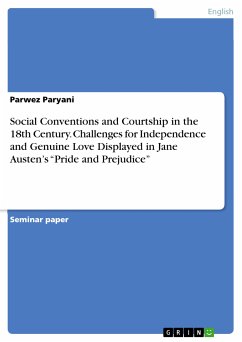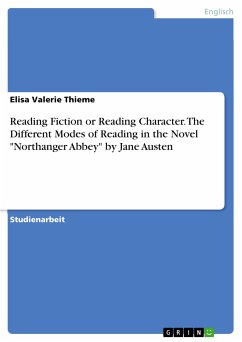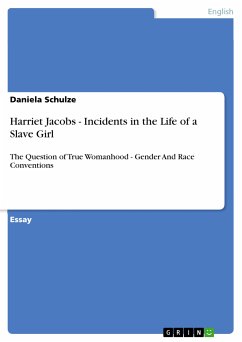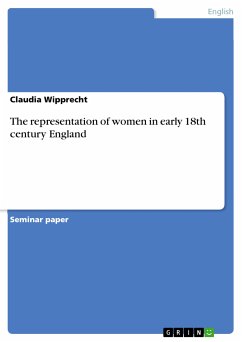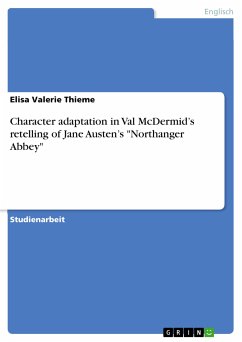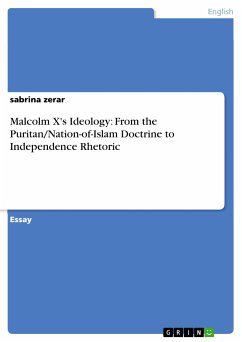Seminar paper from the year 2014 in the subject English Language and Literature Studies - Literature, grade: 1,7, University of Trier, course: Lovers, language: English, abstract: The concept of marriage in the 18th century was subject to a dynamic shift of values which largely determined the motives for choosing an appropriate partner. While courtship was solely exercised upon the grounds of social compatibility, the emergence of romanticism began to question such pragmatic approaches. As divorce was not an option, marriages in previous centuries were most likely to be arranged by kin and parents to ensure that their offspring was securely embedded into a socially and financially stable environment. Concerning these terms, children were seen as live property of their parents: “Children are so much the goods, the possessions of their parent, that they cannot, without a kind of theft, give away themselves without the allowance of those that have the right in them.” (Stone 180) However, in the late seventeenth and eighteenth century, a gradual shift towards individual freedom could be observed. Although marriages were still mostly arranged, children were allowed to participate in choosing suitable spouses. Therefore, it is arguable that the arrangement of marriages were supposed to serve the purpose of ensuring a fulfilling live for the children, especially in financial regards, rather than claiming a property. Jane Austen, although never married herself, displays the contradiction of social conventions and genuine love in finding a spouse through various facets. “Pride and Prejudice” delivers a microscopic view on a rural family and manages to reflect contemporary social customs of the 18th century. In particular, Austen focusses on the struggle, the main protagonist, Elizabeth, has to go through in order to find genuine love as well as a stable marriage. This paper aims to contrast virtues and behaviors of the 18th century, which were expected from young women, with Elizabeth’s search for individual freedom. Furthermore, it will be examined how Austen able displayed a range of motives for marriage through various characters. Throughout the course of her intricate, but in the end romantic entanglement with Mr. Darcy, it will be examined how both were able to overcome doubts.
Bitte wählen Sie Ihr Anliegen aus.
Rechnungen
Retourenschein anfordern
Bestellstatus
Storno

